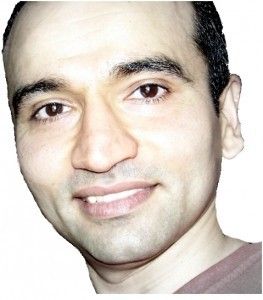

Futurist, visionary, leader and evangelist — what's the difference?
A leader or an evangelist can be a visionary too, and then you are not too far from becoming a futurist — if you want to become one
Technology is moving faster than ever, faster than our need to innovate, faster than we can adapt.

If we want to make use of the accelerating growth of technology for solving some of the biggest problems we have today, then we need to think differently. We need futurists, visionaries, evangelists, and leaders. Yes, we need all.
Some of these roles are overlapping such as a futurist has to be a visionary too, and a leader without vision can’t sustain for a long. We are living in large uncertainties and none can predict the future. However, it is important to know what is ahead and how to methodically anticipate as fast as possible, if not as far as possible.
1. The Rise Of The Futurist
All of us are futurists. We are consistently making guesses about the future, and some are able to detect signals while examining various trends.
A futurist studies the future and makes prediction. He must be a visionary too. They explore possibilities and predictions about the future. With their foresight and systematic study of alternative — they come up with predictions.
What Futurists Do
They talk about things to come and new markets that will be emerging whether that of human society in particular or of life on Earth in general.
Futurists play a key role in the present times when the speed of change and speed of knowledge both are accelerating. Sometimes there remain too many dots to connect and that calls for a lot of experiments

The Rise Of The Futurist" alt="The Rise Of The Futurist" />
Futurist Example: Ray Kurzweil, Ray has got 20 honorary doctorates, has been awarded honors from three U.S presidents till now.

He has written books on health, artificial intelligence (AI), transhumanism, the technological singularity, and futurism.
Ray has predicted that: —
Humans and machines will merge within 20 years
Nanobots will live in our brains in the 2030s
Machine can become conscious
In 2009, Ray predicted we will become immortal in 20 years ( by 2029 ), i am not sure if that is coming so soon
2. Let’s Talk About Visionaries
Planning the future with visions and imaginations having ideas about what the future will be or could be like. Systematic insights and multiple perspectives on things make visionaries important for today’s economy and organizations.
They take current baselines and put multi-fold contexts like changing technologies and predicts the future shape of things to come.
The visionary starts with a clean sheet of paper, and re-imagines the world.
-Malcolm Gladwell
Tech Visionary Example: Jeff Bezos. Jeff’s Amazon intends to dominate in every market, delivery, logistics, cloud computing, and echo speaker that you control from your voice.
Amazon’s vision statement is
“To be Earth’s most customer-centric company, where customers can find and discover anything they might want to buy online.”
3. On Evangelists
Evangelists influence people by using many channels and they are advocate of a particular cause. For example, Industry specific digital evangelist will predict enterprise level changes that digital transformation will bring and he will help redefine the relationship between various internal and external parts of the organization.
They understand the value impact all changes and innovations that are happening now
Tech Evangelist Example: Avinash Kaushik. Avinash is the co-Founder of Market Motive Inc and the Digital Marketing Evangelist for Google. Kaushik is on the Advisory Board of University of Toronto Rotman School of Management’s program on CRM Excellence as well as on the Advisory Board of University of California at Irvine’s program on Web Intelligence
4. Finally, on Leaders
Simply saying, leaders leads or commands a group , organization or country. In today’s economy we need new kind of leaders with broader qualities.
Great leaders are almost always great simplifiers, who can cut through argument, debate, and doubt to offer a solution everybody can understand — Colin Powell
Tech Leader Example: Bill Gates. William Henry Gates is an American business magnate, investor, author, philanthropist, and co-founder of the Microsoft Corporation Microsoft is now much more than just operating systems and office software company, and the impact of Microsoft on Tech industry is almost unfathomable
We are not living in one of those days when leader were inaccessible and they used to enjoy authoritative command, running bureaucracy and regulations.
Now leaders need to earn their leadership everyday.
To Sum Up
Today’s leaders have share vision based on win/win, driven by innovation and constant learning, exhibiting flexibility and growth. Leadership of current time should tell stories and regard universal human potential.
My own view on this matter is that a leader or an evangelist can be a visionary too, and then you are not too far from becoming a futurist — if you want to become one


